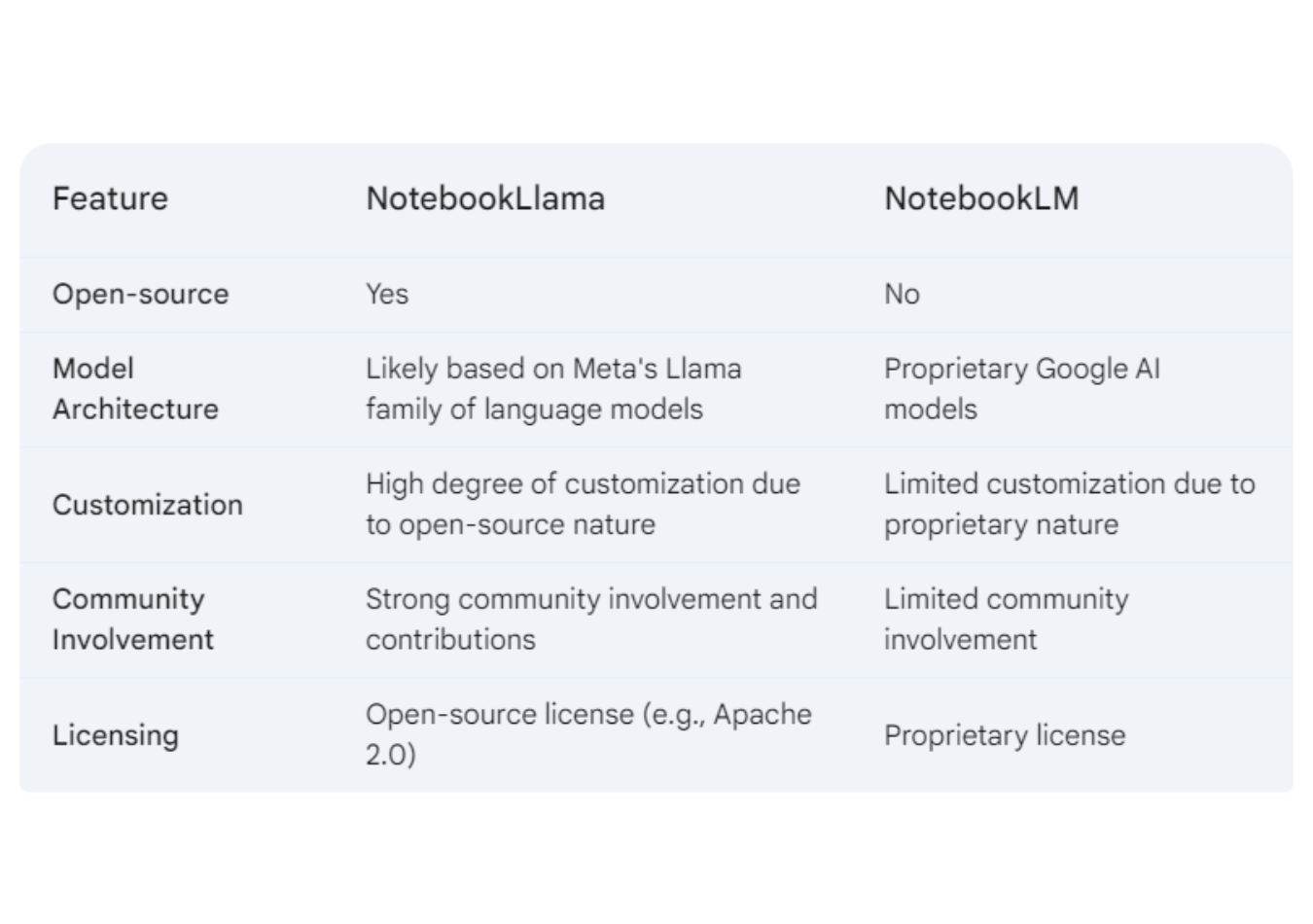How would you feel if you found out the hosts of your favorite podcast weren't real but in fact were an AI model talking to another AI model?
Meta is one of many companies exploring the potential of AI to revolutionize podcasting and other audio content creation with the release of ‘Notebook Llama’
In this article we’ll tell you everything you need to know about Notebook Llama, how it works and how it is different from NotebookLM.

What is Notebook Llama?
Notebook Llama is an AI tool developed by Meta that can generate podcast episodes from text based documents.
Meta’s Notebook Llama is open source, meaning that anyone can use it for free. Developers can access, modify, and distribute the source code easily.
Meta typically releases its AI innovations as open-source projects, previously stating the company’s commitment to the belief that an ‘open approach to technology can lead to more innovation, more accountability and better outcomes for everyone.’
The name NotebookLlama refers to the ‘notebook’ style interface and Meta’s Llama family of large language models, short for Large Language Model Meta AI.
Notebook Llama vs NotebookLM
Meta’s release of the new NotebookLlama directly rivals Google’s incredibly popular NotebookLM. Both of these AI tools are designed to convert text into engaging podcast conversations.

The key difference between the two is that NotebookLlama is open source whereas NotebookLM is not. This means anyone can access, modify, and distribute the source code and related materials of NotebookLlama.
How does NotebookLlama work?
NotebookLlama builds upon the power of Llama, Meta’s family of large language models.
1. A user first uploads a text based document, this could be an article, book or research paper.
2. The large language model that powers Notebook Llama will process the text and extract the most important information.
3. Using natural language processing Notebook Llama will then generate a script for the podcast episode outlining key points, arguments and discussions.
4. Notebook Llama then employs text-to-speech technology to bring the audio podcast discussion to life.

When Coding Becomes Conversation
How natural language prompts and LLMs are redefining software delivery, talent models and accountability in enterprise development.
How to download Notebook Llama?
To download and use NotebookLlama, you'll need to follow these steps:
1. Set up your environment: Ensure you have Python installed on your system as well as the necessary libraries.
2. Download the NotebookLlama code: Clone the NotebookLlama repository from GitHub:
3. Download LLM model: You'll need to download a suitable LLM model, such as one from the Llama family. Follow the instructions in the repository to download and install the model. Set up the model parameters and configuration according to your specific needs.
4. Run the NotebookLlama script: Run the provided Python script to start the NotebookLlama process.







Comments ( 0 )